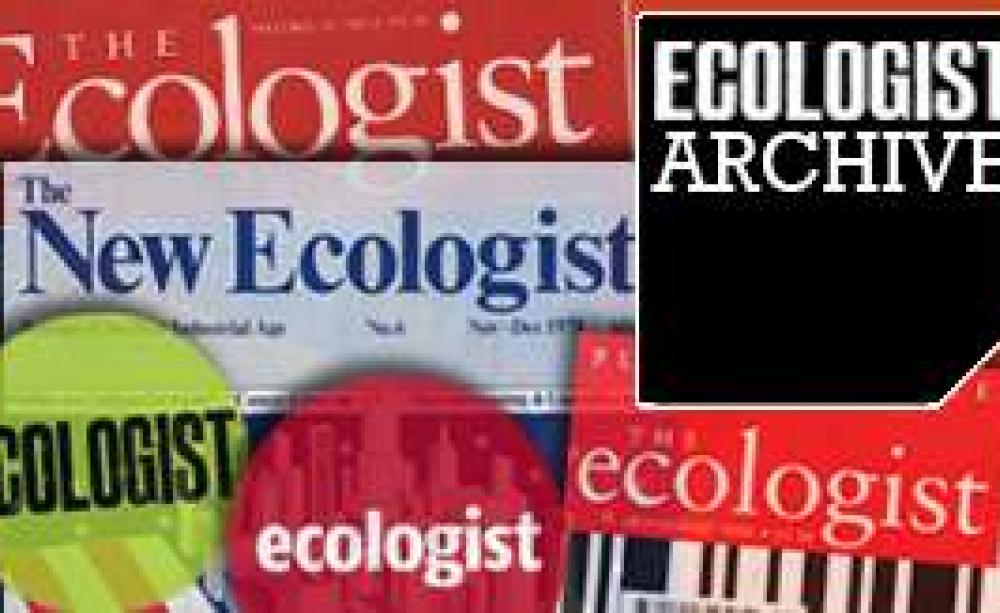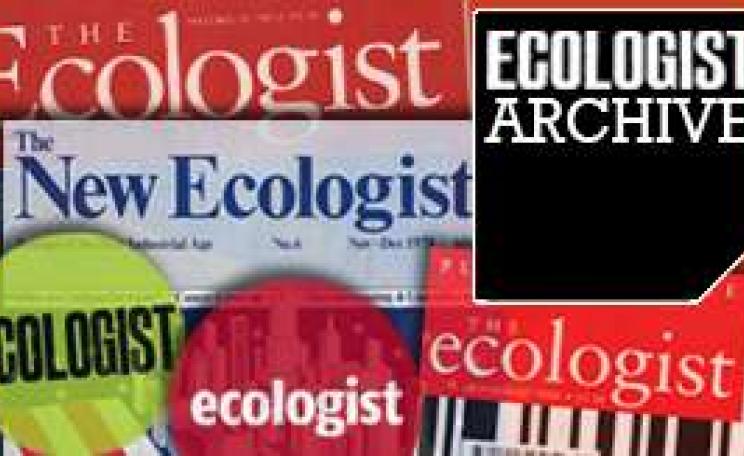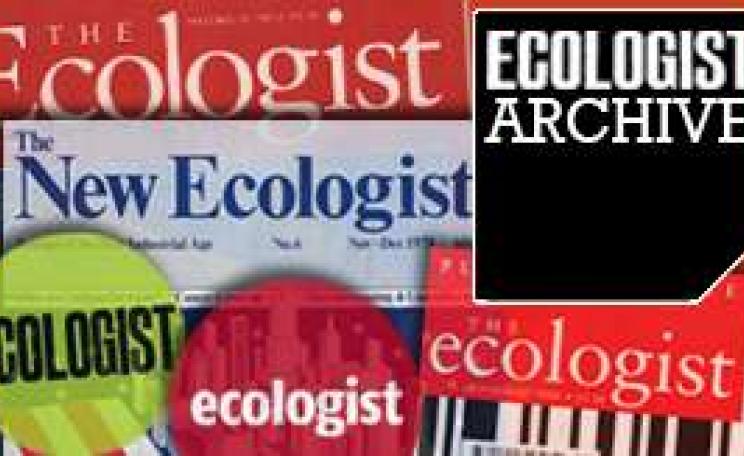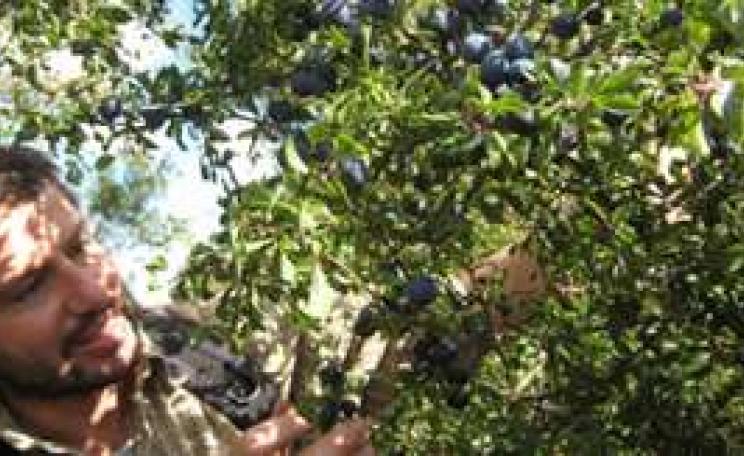Foraging – what’s all the fuss about? What exactly is it anyway? Who does it and why? I’m one of those clueless fools who thinks that answers can be found in books, so indulge me for a second while I forage about in my Chambers English Dictionary:
Forage: n. fodder, or food for horses and cattle; provisions; the act of foraging; v. intr. to go about and forcibly carry off food for horses and cattle; to rummage about for what one wants; v. tr. to plunder.
Mmm... I’d certainly never plunder. Foraging isn’t about detrimentally exploiting the environment; as far as I’m concerned it has more to do with establishing relationships of sustainable and interactive responsiveness within it, relations based upon respect and appreciation. Besides, I don’t have a horse.
In actual fact, before becoming consciously aware that what I did was foraging, I had considered the concept as being applicable only to the animal kingdom – a term focusing the research activities of behavioural ecologists – or if it had any bearing on the human world at all, as a word used by anthropologists to describe the food acquisition methods of our early hominid, Stone Age and Mesolithic ancestors. Perhaps the spectre of peak oil, social collapse, anarchy and chaos is a mirror that will reflect our past prehistoric behaviours as an inevitable model for the coming centuries, in which the atavistic suddenly becomes profoundly futuristic and, like our hunter-gatherer ancestors, we either forage or die. I hope not!
As for wild food, that’s certainly an ambiguous term and a dictionary isn’t such a bad place to start for that, either. Just imagine: had the food-procuring fiends employed by supermarkets actually bothered to look the term up before debasing its meaning in a drunken orgy of inappropriate prefixing – wild salad mix, wild strawberry yoghurt, wild rocket, wild berry cheesecake, wild mushroom quiche, wild bean coffee – then visiting aliens and foreigners would be left with the misconception that wild means grown in polytunnels dotted about the globe.
However one defines these terms, there is clearly is a resurgent interest in foraging for wild food, which is all the rage once again. Books, magazine and newspaper articles abound, as well as numerous wild food and foraging-themed TV programmes. Stick-rubbing Ray Mears seems to be lurking around every corner with his friction fires and pit-cooked wildings, while Hugh Fearnley-Whittingstall is nothing if not ubiquitous. I admire them, and any hint of weariness comes not from a sense that they’re overexposed or the fact that friends are repeatedly telling me they saw Hugh do this and Hugh do that; rather it’s the horribly vicarious Neil Postmanesque Amusing Ourselves To Death nature of the whole thing.
We are sold short by such TV mediated experience, which, unless hands-on, is really no experience at all. It can never truly connect us with the deeper, more ecologically and existentially based wellsprings from which foraging’s current popularity flows. It merely gives us short-lived, tokenistic environmental ‘knowledge’.
Yet to have any meaning or relevance at all, foraging is something that must be practiced.
The underlying assumption here is that foraging is a ‘green’ activity and therefore I must be Mr Green and environmental. No, picking weeds doesn’t necessarily make you green – not unless you eat excessive amounts of chlorophyll-rich leaf curd (leaf curd, the protein extracted from leaves, is my latest Patrick Whitefield inspired obsession; p260 The Earth Care Manual) – but it does help you see in green. Foraging could play a small part in a low-carbon society, possibly contributing to the transition foods of transition towns and small scale Permaculture communities.On a larger scale it may be completely unsustainable, but that has yet to be proved. Could it be proved?
The wild food challenge
With these considerations in mind, you can imagine my thoughts on reading the following statement by Susan Campbell, who was writing for the 2004 Oxford Symposium on Food and Cookery, whose theme was ‘Wild Food’: ‘I have yet to meet,’ she claims, ‘anyone who could convince me that modern man could subsist on wild food alone, legally or illegally, the year round in a northern climate.’
Well, perhaps she has yet to meet any fist-waving, this-land-is-ours, back to-nature fools such as myself. A fool who, both ignoring the collective implications behind the phrase ‘modern man’ and, simultaneously, strangely stimulated by her reference to illegality, would take her statement as a personal challenge. Not, of course, that I would wish to indulge in any gratuitously subversive
behaviour, paying mere lip service to the incumbent permissions demanded by an over-baked reality of private ownership. Although, when you think about the way in which a local, seasonal and invigoratingly nutritious wild food diet could counter many of the collective ills bound up within the ‘ill’ of ‘ill-egality’, and about foraging’s inherently radical and egalitarian potential, subversion clearly does have a place.
Indeed, having a place, a profoundly rooted and intimate sense of connection to one’s local environment, a genuine stake and sense of belonging, is one of foraging’s greatest gifts, informing one’s desire to nurture, value and protect as part of the reciprocal challenge of consciously interdependent living. Foraging, for me, increasingly subverts all notions of the ordinary and commonplace, revealing a magical world of simplistic complexity and natural inspiration. But, can it ultimately subvert the long-standing habitual behaviours and addiction to convenience and ease that are so often my defaults?
With my fool’s credentials laid bare, then, it is with playful aptness that I’ve decided to embrace Susan Campbell’s wild food challenge, by endeavouring to eat – or ‘subsist’, as she describes it – on nothing but 100 per cent foraged food from April Fool’s Day 2008 until 31 March 2009. It won’t be easy, and over the coming year I’ll be reporting back with updates (as well as writing more practically about wild food in general). Will it be possible, sustainable and provide information that can be extrapolated to larger groups? Will I waste away or merely survive, merely subsist? Back to my pedantic dictionary-waving antics again. Subsist: to hold out, to stand fast. Subsistence: real being.
Real being? Awakening? Foraging Buddahood or perhaps just fool’s gold? Enough. I must go and forcibly carry off some food for this wild food hobbyhorse of mine.
Fergus Drennan writes about, does research into, runs courses on and generally, lives and breathes wild food.
Contact me:
For information on foraging or to get in touch, visit my website http://www.wildmanwildfood.co.uk
This article first appeared in the Ecologist April 2008






